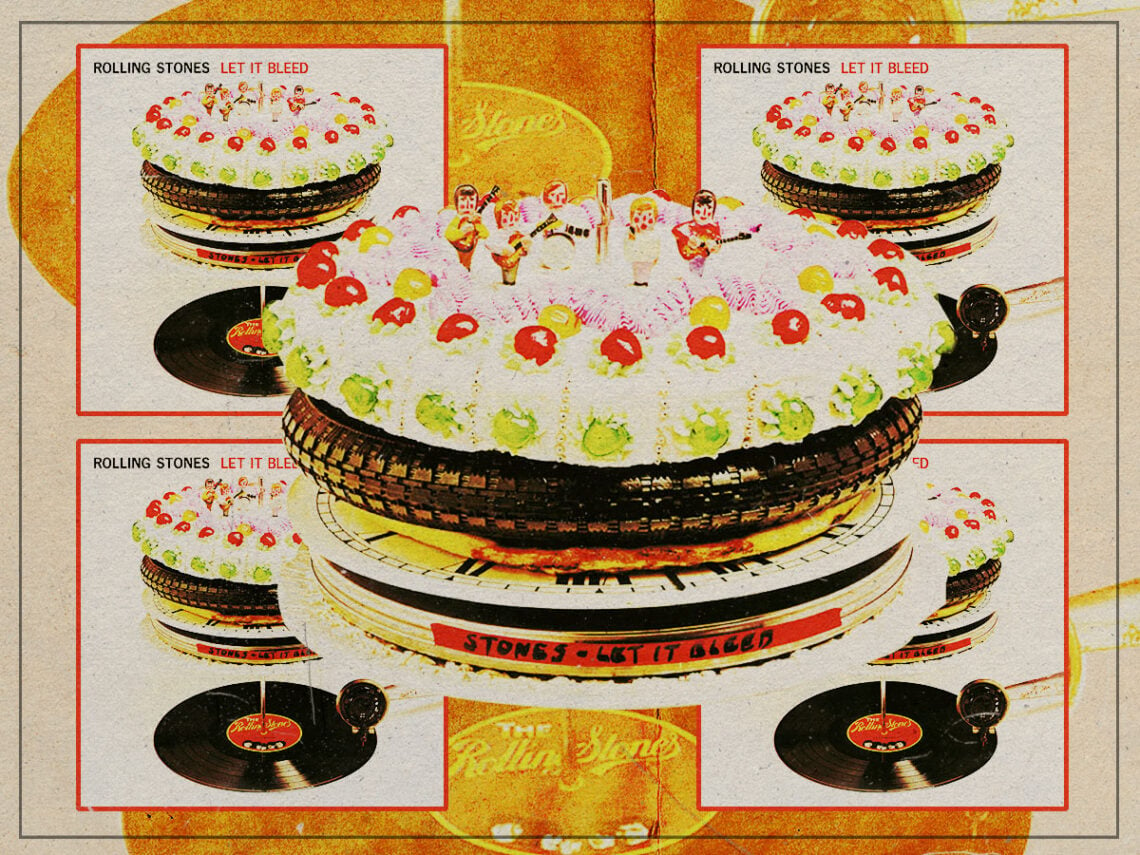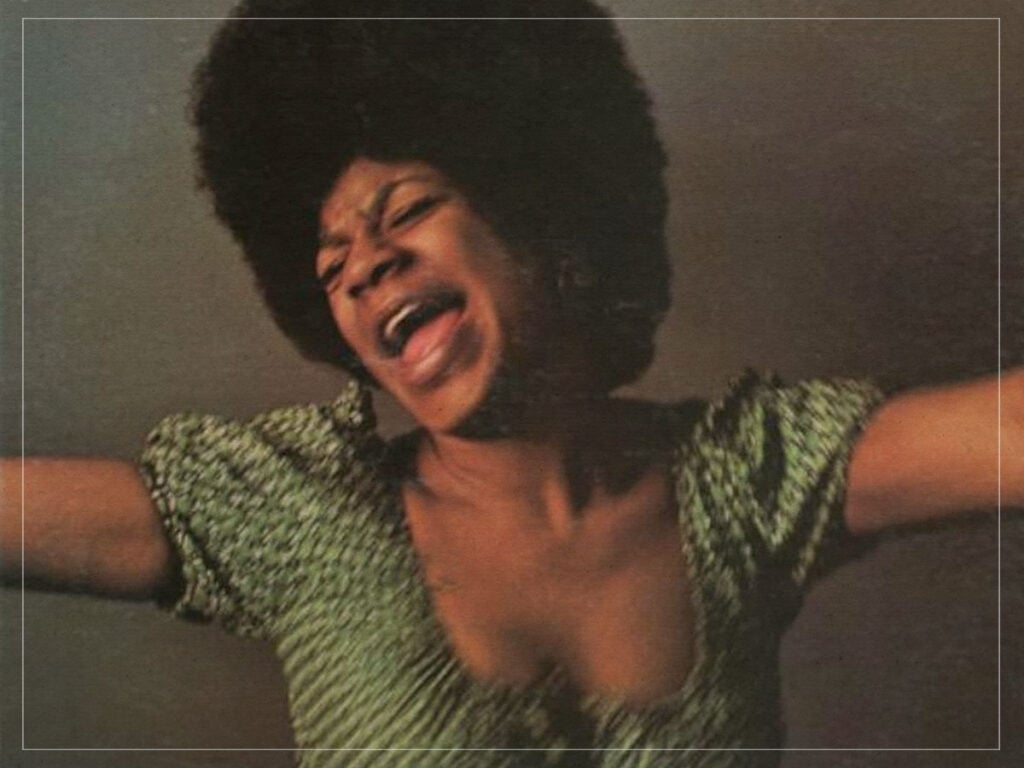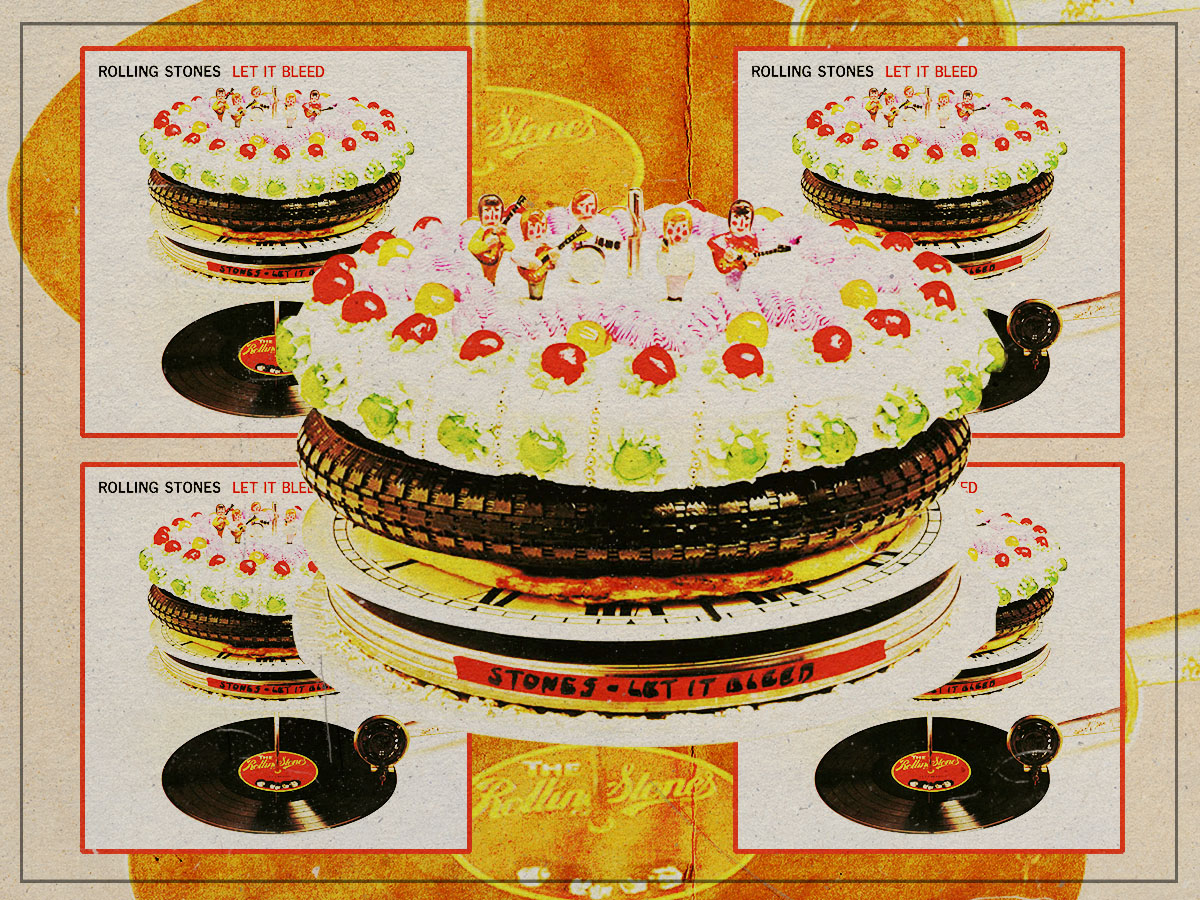
(Credits: Far Out / Decca Records)
Sat 25 October 2025 3:00, UK
Let It Bleed poured with such vigour that tender listeners got to the end of ‘You Can’t Always Get What You Want’ and found themselves in need of an ICU ward. In a non-stop barrage of rousing rock ‘n’ roll, The Rolling Stones threw the kitchen sink of the 1960s into a bonfire of vanities at its closing party.
Behind Delia Smith’s infamous cake lay 42 minutes of music that could write a disgruntled worker’s resignation letter for them. America was enduring an ugly period as the Vietnam War reached a fever point, the Manson Murders terrified Los Angeles, political assassinations were proving eerily commonplace, and Mick Jagger was harnessing all of it.
“Even though I was living in America only part time, I was influenced,” he told Jann Wenner. “All those images were on television. Plus, the spill out onto campuses.” In the band’s most political album, Jagger looked to encapsulate this tinderbox with songs that swirled like a hurricane. There is no finer example of that than the definitive ‘Gimme Shelter’.
The opening track to the record is the perfect rock anthem that reflects the stormy day on which it was written, and the stormier zeitgeist it belongs to, the dirge that decreed the death of the 1960s. It is the best song that the Rolling Stones have ever written, and if you disagree, you’re not only wrong, you’re a grotesque freak. Just ask Jagger.
When appraising the apocalyptic masterpiece, the pouting singer explained, “We thought, ‘Well, it’d be great to have a woman come and do the rape/murder verse,’ or chorus, or whatever you want to call it’. We randomly phoned up this poor lady [Merry Clayton] in the middle of the night, and she arrived in her curlers and proceeded to do that in one or two takes, which is pretty amazing.”
 Merry Clayton in full flow. (Credits: Far Out / Album Cover)
Merry Clayton in full flow. (Credits: Far Out / Album Cover)
This set the tone for a song that seemed to arrive with all the haste of Roadrunner. “She came in and knocked off this rather odd lyric,” Jagger recalled of Clayton’s contribution. “It’s not the sort of lyric you give everyone – ‘Rape, murder / It’s just a shot away’ – but she really got into it, as you can hear on the record. She joins the chorus. It’s been a great live song ever since.”
Away from the stage, it defined the mood that the band were looking to muster with Let It Bleed from the off. In an age of flower power, there was really no other band who could cut such a searing song and have it appeal to the masses. Thus, Jagger thinks it is not only the best pick from the ‘69 record, but the best they’ve ever offered.
“It was a very moody piece about the world closing in on you a bit,” Jagger said of the song that now sadly has a sustaining prescience. “When it was recorded, early ’69 or something, it was a time of war and tension, so that’s reflected in this tune. It’s still wheeled out when big storms happen, as they did the other week. It’s been used a lot to evoke natural disaster.”
With Jagger’s typical pomp and passion, the track swaggers with ease. It is the perfect anthem to bring out his searing side. As Roger Daltrey put it, “I’ve always thought that you cannot take away the fact that Mick Jagger is still the number one rock and roll show. The only other people I’d put up against him would be perhaps James Brown.”
It’s not without irony that the Stones’ decade began in earnest with Brown whipping the floor with them, and everyone else for that matter, on the TAMI show. Almost five years later to the day, the group had learned enough from that human maelstrom to exact a storm of their own, and it still rattles the shutters as soon as the needle drops on Let It Be to this day.
Related Topics

